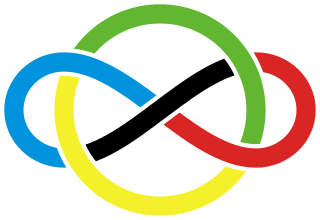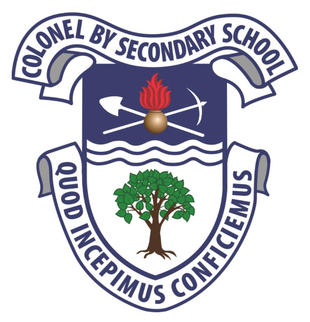Awards and Prizes
There are two divisions: Canadian Awards, which is only for participants writing the exam from within Canada; and International Awards, which is only for participants writing it outside of Canada.
Canadian Award Categories
There are award categories for Best in Canada and Best in Province and Best in Region for all students as well as for students at each grade. For example:
- Best in Canada Overall: all official participants (regardless of grade) in Canada compete for this, the most prestigious category,
- Best in Canada, Grade 11: all Grade 11 students in Canada compete for this,
- Best in BC (overall): all official participants (regardless of grade) in British Columbia,
- Best in BC, Grade 12: all Grade 12 students in BC,
- Best in Toronto (overall): all official participants in Toronto-area schools,
- Best in Toronto, Grade 12: All grade 12 and CEGEP students in Toronto compete for this category
- etc.
The top six unique scores in any category earn awards: Gold, Silver, Bronze, Honourable Mention.
The top students in Canada also normally receive cash awards based on their ranking.
International Awards
The top official participants from outside Canada are considered for the international awards division, which is not grade-dependent. The top three unique scores are given Gold, Silver or Bronze. Additionally, any international student who achieves at least a score as high as the lowest Best in Canada Overall Honourable Mention will receive an Honourable Mention award in the International division.
Invitational Competitions and Math Team Canada
The top students who are Canadian Citizens or Permanent Residents (independent of grade or where they live or attend school) will be invited to participate in the Canadian Mathematical Olympiad (CMO) competition. Students who perform well on the CMO are selected for Math Team Canada, which represents Canada at the International Mathematical Olympiad (IMO) the following summer.
Approximately the top 50 COMC students are invited to write the CMO. The next approximately 75 COMC students are invited to write the CMO Qualifying Repêchage. Approximately the top 10-15 students from the Repêchage will also be invited to write the CMO.
Scholarships
Competition results will be shared with Canadian partner universities to help them consider offering academic scholarships to high-potential students.
Camps
Approximately 24 Canadian students in grade 8, 9 or 10 with strong performance on the COMC will be invited to the summer Canada Math Camp (CMC) hosted by the University of Toronto.
Canadian students who demonstrate solid performance at their grade level in their region or province may be invited to a summer regional CMS Math Camp staged in collaboration with a CMS university partner in their province.
Participation Certificates (Quartiles) and Prizes
When the final results are announced, teachers/organizers will be able to log into their accounts to download and print the Award or Participation certificates for all their students.
Certificate titles are based on the quartile into which the student's score falls:
- 1st quartile = Performance with Distinction
- 2nd quartile = Performance with Honours
- 3rd or 4th quartile = Certificate of Participation

The International Mathematical Olympiad (IMO) is a mathematical olympiad for pre-university students, and is the oldest of the International Science Olympiads. It is widely regarded as the most prestigious mathematical competition in the world. The first IMO was held in Romania in 1959. It has since been held annually, except in 1980. More than 100 countries participate. Each country sends a team of up to six students, plus one team leader, one deputy leader, and observers.
The International Physics Olympiad (IPhO) is an annual physics competition for high school students. It is one of the International Science Olympiads. The first IPhO was held in Warsaw, Poland in 1967.

Colonel By Secondary School is a high school in the Beacon Hill neighbourhood of Ottawa, Ontario, Canada. It is a non-semestered school, and was the only English public school in Ottawa that offers the International Baccalaureate (IB) diploma programme until Merivale High School began its IB programme in September 2019. Colonel By has a reptuation locally and provincially as an academically rigorous school. In the 2018–19 school year, it was ranked the sixth best secondary school in Ontario by the Fraser Institute.
The United Kingdom Mathematics Trust (UKMT) is a charity founded in 1996 to help with the education of children in mathematics within the UK.
The United States of America Mathematical Olympiad (USAMO) is a highly selective high school mathematics competition held annually in the United States. Since its debut in 1972, it has served as the final round of the American Mathematics Competitions. In 2010, it split into the USAMO and the United States of America Junior Mathematical Olympiad (USAJMO).
The American Mathematics Competitions (AMCs) are the first of a series of competitions in secondary school mathematics sponsored by the Mathematical Association of America (MAA) that determine the United States of America's team for the International Mathematical Olympiad (IMO). The selection process takes place over the course of roughly five stages. At the last stage, the US selects six members to form the IMO team.

Science Olympiad is an American team competition in which students compete in 23 events pertaining to various fields of science, including earth science, biology, chemistry, physics, and engineering. Over 7,800 middle school and high school teams from 50 U.S. states compete each year. U.S. territories do not compete; however, several international teams do compete in Science Olympiad tournaments in the US.

Mathematical Kangaroo is an international mathematics competition in over 77 countries. There are six levels of participation, ranging from grade 1 to grade 12. The competition is held annually on the third Thursday of March. The challenge consists of problems in multiple-choice form that are not standard notebook problems and come from a variety of topics. Besides basic computational skills, they require inspiring ideas, perseverance, creativity and imagination, logical thinking, and other problem-solving strategies. Often there are small stories, intriguing problems, and surprising results, which encourage discussions with friends and family.
The Indian National Mathematical Olympiad (INMO) is a highly selective high school mathematics competition held annually in India. It is conducted by the Homi Bhabha Centre for Science Education (HBCSE) under the aegis of the National Board for Higher Mathematics (NBHM).
MathChallengers is the former Mathcounts in British Columbia. It is open to all grade 8, 9, and 10 students from British Columbia. The major sponsors are the Association of Professional Engineers and Geoscientists of B.C. (APEGBC), the B.C. Association of Mathematics Teachers (BCAMT), BC Hydro, and IBM Canada.
The Tournament of Towns is an international mathematical competition for school students originating in Russia. The contest was created by mathematician Nikolay Konstantinov and has participants from over 100 cities in many countries.

The Bangladesh Mathematical Olympiad is an annual mathematical competition arranged for school and college students to nourish their interest and capabilities for mathematics. It has been regularly organized by the Bangladesh Math Olympiad Committee since 2001. Bangladesh Math Olympiad activities started in 2003 formally.
Titu Andreescu is an associate professor of mathematics at the University of Texas at Dallas. He is firmly involved in mathematics contests and olympiads, having been the Director of American Mathematics Competitions, Director of the Mathematical Olympiad Program, Head Coach of the United States International Mathematical Olympiad Team, and Chairman of the United States of America Mathematical Olympiad. He has also authored a large number of books on the topic of problem solving and olympiad-style mathematics.
The Olympiade Mathématique Belge is a mathematical competition for students in grades 7 to 12, organised each year since 1976. Only students from the French community participate, Dutch-speaking students can compete in the Vlaamse Wiskunde Olympiade.
This article describes the selection process, by country, for entrance into the International Mathematical Olympiad.
World Maths Day is an online international mathematics competition, powered by Mathletics. Smaller elements of the wider Mathletics program effectively power the World Maths Day event.
The Canadian Mathematical Olympiad (CMO) is Canada's top mathematical problem-solving competition. It is run by the Canadian Mathematical Society. The Olympiad plays several roles in Canadian mathematics competitions, most notably being Canada's main team selection process for the International Mathematical Olympiad.

Zhuo Qun Song, also called Alex Song, is a Chinese-born Canadian who is currently the most highly decorated International Mathematical Olympiad (IMO) contestant, with five gold medals and one bronze medal.
The Singapore Mathematical Society is the primary organization "representing and advancing the interests of the mathematical community in Singapore".





